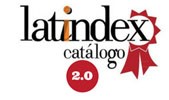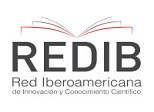Risk factors associated with ventilatory weaning failure in patients in the Intensive Care Unit
DOI:
https://doi.org/10.69890/hallazgos21.v7i2.570Keywords:
Ventilator weaning;, respirator disconnection;, artificial respiration;, ventilator removal;, respiratory therapy.Abstract
Objective: To analyze the risk factors associated with the failure of ventilatory weaning in adult patients who are in the Intensive Care unit of the Saludesa Hospital, during the period from January to December 2019.
Methods: Cross-sectional, observational study of patients with ages greater than or equal to 35 years who were under mechanical ventilatory support for more than 48 hours.
Results: 60% of patients had unsuccessful weaning, mortality was 21%, with 91% having the highest percentage of unsuccessful weaning; furthermore, men had an 83% failure. Likewise, a high failure was noted in those suffering from Chronic Obstructive Pulmonary Disease (COPD) with 75%. Patients with a hospital stay of 14 or more days had 80% failure at weaning; patients with prolonged weaning presented a failure equivalent to 71%.
Conclusions: The risk factors associated with weaning failure were age, sex, personal pathological history, type of weaning and intubation time.
References
Arnaud, T. (2014). Weaning from the ventilator and extubation in ICU. https://journals.lww.com/cocriticalcare/Fulltext/2013/02000/Weaning_from_the_ven tilator_and_extubation_in_ICU.10.aspx
Brochard, J. M. (2016). REMI 2170. Epidemiología del destete de la ventilación mecánica según una nueva clasificación. El estudio WIND. http://www.medicina-intensiva.com/2016/10/2170.html
, Corbellini, C. (2015). Weaning from mechanical ventilation: a cross-sectional study of reference values and the discriminative validity of aging. Journal of physical therapy Science, 27(6).
Chao, D. C. H. (1997). Impact of renal dysfunction on weaning from prolonged mechanical ventilation. Crit Care, 1(3): 101–104. DOI: 10.1186/cc112
Dávila Fernanda, M. (2017). Mortalidad y factores relacionados al fracaso del destete de la ventilación mecánica en una unidad de cuidados intensivos de Lima, Perú. Medica Herediana, 30(1). http://www.scielo.org.pe/pdf/rmh/v30n1/a02v30n1.pdf
Fernández Merjildo, D., Porras García, W., León Rabanal, C., & Zegarra Piérola, J. (2019). Mortalidad y factores relacionados al fracaso del destete de la ventilación mecánica en una unidad de cuidados intensivos de Lima, Perú. Revista Medica Herediana, 30(1), 5-11. https://dx.doi.org/10.20453/rmh.v30i1.3466
Hwan, J. (2017). Clinical factors associated with weaning failure in patients requiring prolonged mechanical ventilation - Shin - Journal of Thoracic Disease. DOI: 10.21037/jtd.2017.01.14
Sayed, S. S. (2019). Clinical outcome of weaning in mechanically ventilated patients with chronic obstructive pulmonary disease. Egypt J Bronchol, 13 (4). DOI: 10.4103/ejb.ejb_9_19
Sandoval-Moreno, L. M. (2018). Factores asociados a destete fallido de la ventilación mecánica en adultos con soporte ventilatorio igual y mayor a 48 horas. Revista Colombiana de Anestesiología, 46 (4). https://doi.org/10.1097/cj9.0000000000000079
Scalise, P. J. (2015). Weaning from long-term mechanical ventilation. Chronic Respiratory Disease, 2: 99-103. https://journals.sagepub.com/doi/pdf/10.1191/1479972305cd081rs
Silva-Cruz, A. L. (2018). Factores de riesgo para fracaso en la extubación en la unidad de cuidados intensivos. Revista Medicina intensiva, 30(3). http://www.scielo.br/pdf/rbti/v30n3/0103-507X-rbti-20180046.pdf.
Sosa-Medellín, M. R. (2017). Extubación fallida en una unidad de cuidados intensivos de la ciudad de Mexico. Medicina intesiva de Mexico, 33(4). http://www.scielo.org.mx/pdf/mim/v33n4/0186-4866-mim-33-04-00459.pdf
Published
How to Cite
Issue
Section
License
Los artículos enviados a la Revista Científica Hallazgos21 deberán ser totalmente originales e inéditos.
Los autores son los responsables de los textos y las imágenes incluidas en los artículos y no necesariamente reflejan el pensamiento de la editorial o de la Pontificia Universidad Católica del Ecuador, Sede Esmeraldas (PUCESE).
Los autores disponen cederle a la Revista Científica Hallazgos21 todos los derechos inherentes para la edición, publicación y distribución o divulgación del mismo.
Se autoriza a las revistas firmantes de los acuerdos de Encuentros de Revistas Latinoamericanas para reproducir en parte o totalmente los artículos con la sola mención de la fuente claramente señalada.







